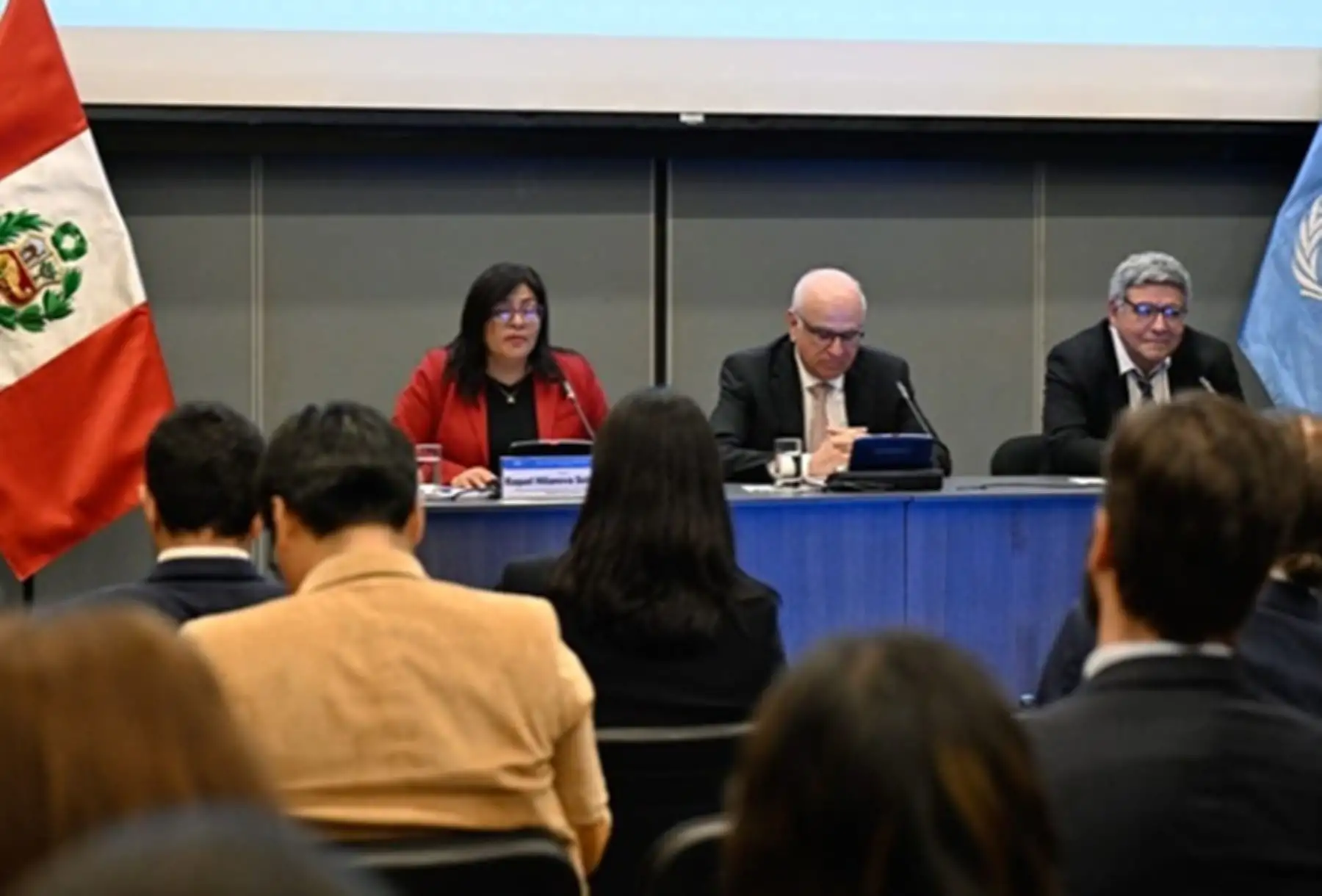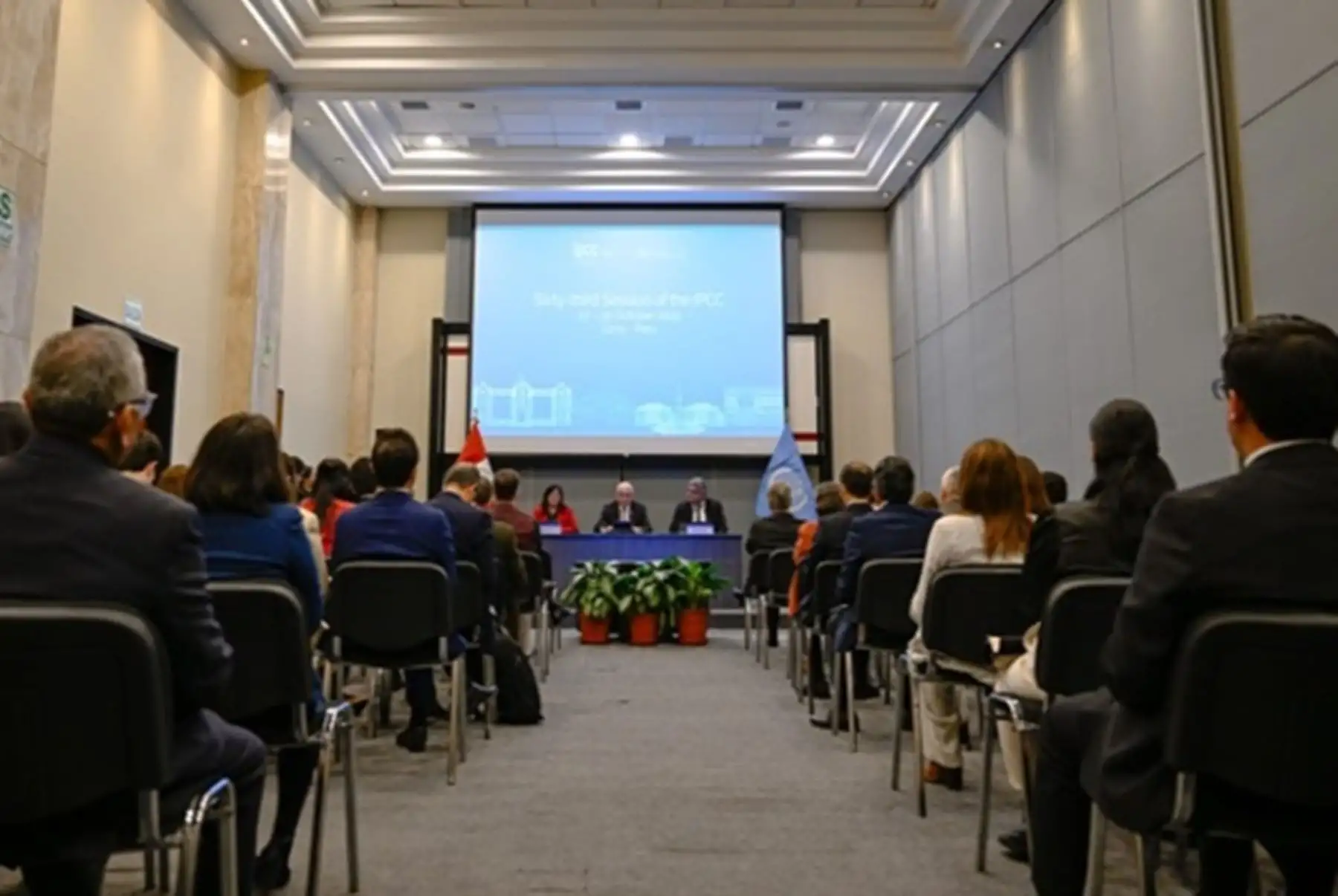The world's leading climate change experts will meet in Peru for the 63rd Session of the Intergovernmental Panel on Climate Change (IPCC), which is taking place in Lima from October 27 to 30 of this year.
The IPCC’s authoritative scientific assessments have enabled governments worldwide to translate evidence into policy and ensure science guides climate action.
"In Peru, the connection between knowledge and public policy is a firm conviction," said Raquel Soto Torres, Vice Minister of Strategic Development of Natural Resources at the Ministry of the Environment (Minam).
This meeting —considered the most important of its kind— will bring together delegations from 195 countries. IPCC Chair Sir Jim Skea will be in attendance.
"Hosting this event reflects Peru’s commitment to advancing an inclusive, ambitious, and science-based climate agenda," Soto added.

The session is organized by the Ministry of Foreign Affairs, in its role as Peru’s IPCC national focal point, and will include participation from scientific research institutions in the environment sector and related agencies.
Peru continues to advance implementation of its National Policy: the National Strategy for Climate Change to 2050 and its climate goals, known as Nationally Determined Contributions (NDCs).
These include 84 adaptation and 66 mitigation measures, more than half of which are currently in progress. Each measure represents a concrete effort to protect ecosystems, reduce vulnerabilities, and build resilience across territories nationwide.
Peru’s scientific contribution
During a briefing at the Ministry of Foreign Affairs on October 23, Vice Minister Soto highlighted the scientific role of public research institutes in the environment sector, which generate critical information on climate scenarios, glaciers, Amazonian ecosystems, and natural hazards.

"The evidence produced by our scientists allows us to anticipate impacts and guide investments, demonstrating that science is not only knowledge, it is a tool for prevention and development," she emphasized.
Soto also underscored the work of the Geophysical Institute of Peru (IGP), responsible for the Peru Climate Change Scientific Knowledge Observatory, a platform compiling more than a thousand analyses of scientific studies on topics such as water, health, forests, and agriculture.
"The Observatory is a clear example of applied science serving climate management, ensuring that scientific knowledge becomes actionable decisions that improve people’s lives," she said.
More in Andina:
(END) LZD / JRA / JMP / MDV